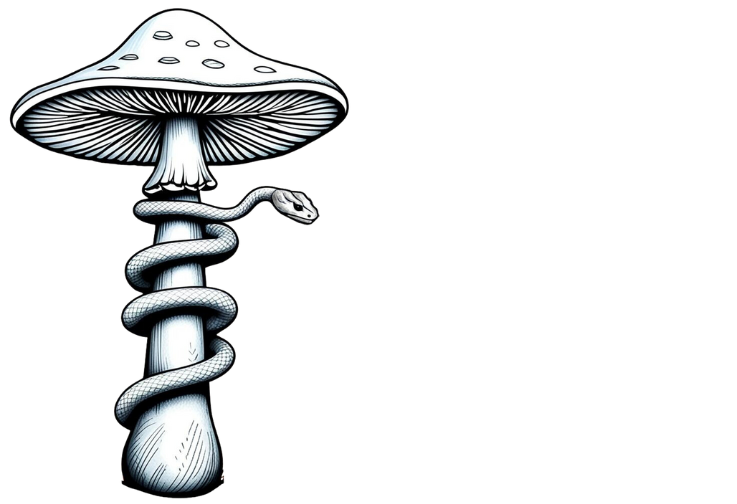Mindfulness Therapies for Presence and Inner Peace
Jan 16, 2024
Mindfulness is the art of being in the present moment, aware of one’s thoughts, feelings, and bodily sensations without judgment. From a long line of ancient practices, mindfulness therapies remedy the stress of fast-paced modern life. They focus on returning the practitioner to the present moment and away from contemplating thoughts and anxiety.
Mindfulness therapies are originally rooted in ancient Eastern spiritual traditions, such as Taoism and Buddhism. Mindfulness travelled to the West in the 1900s due to the role of Jon Kabat-Zinn, an American professor who designed Mindfulness-Based stress reduction (MBSR) - an eight-week intensive mindfulness training program. Later came Mindfulness-Based Cognitive Therapy (MBCT), which was partially based on MBSR. MBCT is a psychotherapeutic technique that uses Cognitive Behavioural Therapy (CBT) along with mindfulness to treat mental health conditions like anxiety and depression. Over time, mindfulness therapies have developed and expanded, leading to the evolution of several other interventions, including Dialectical Behaviour Therapy (DBT) and Acceptance and Commitment Therapy (ACT).
In the book Full Catastrophe Living by Jon Kabat-Zinn, he describes seven attitudes and key principles of mindfulness:
1. Non-judging by remaining an unbiased observer of one’s experience. Becoming aware of the ongoing stream of thoughts that pass through the mind without reacting.
2. Patience by allowing events to unfold in their own time.
3. Beginner’s mind: Remaining open and curious to new ideas and possibilities.
4. Trust: Believing in oneself and one’s feelings. Practising self-compassion when mistakes are made.
5. Non-striving: Pay attention to how the present moment unfolds without trying to adjust anything.
6. Acceptance: Fully acknowledging a situation without resistance.
7. Letting go: Releasing thoughts, emotions, and situations from the mind and staying here and now.
Mindfulness has transcended centuries and cultures because of the benefits it offers practitioners. Some of the evidence-based benefits of mindfulness include the following:
- Stress reduction: Mindfulness, particularly in the form of Mindfulness-Based Stress Reduction (MBSR), has been widely investigated and shown to effectively reduce stress, anxiety, and symptoms of depression.
- Improved mental health: Mindfulness therapies have shown benefits for a vast spectrum of mental health conditions, such as PTSD, OCD, eating disorders, and substance abuse.
- Improved focus and concentration: Regular mindfulness practice has improved attention, even after a relatively short time.
- Emotional regulation: Mindfulness improves the ability to regulate emotions by promoting a healthier relationship with one’s own emotions. It allows an individual to acknowledge their emotions without becoming overwhelmed, ultimately improving the ability to process difficult emotions and move through stressful situations.
- Improved physical health: Mindfulness therapies improve immune system function, lower blood pressure, and improve sleep quality. Through stress reduction and relaxation, mindfulness contributes to improved physical health.
Are you Ready to experience mindfulness? Try this 5-minute mindfulness exercise to get started:
- Find a comfortable place where you can have a few minutes to yourself. Sit in a relaxed but alert position - ideally, with a long spine. You can close or keep your eyes slightly open with a gentle downward gaze.
- Take 5 full breaths. While breathing in and out, notice the sensations as your breath enters and leaves your body. After the 5 breaths, let your breath return to its normal rhythm and continue to pay attention to your inhalation and exhalation.
- Draw your attention to the pauses between your breaths. Notice the silence.
- Bring your attention back to your breath each time your mind wanders. Notice any thoughts, body sensations, emotions, memories, etc., that arise and come back to the breath. Treat anything that comes up with kindness and curiosity.
- Continue this practice for 5 minutes or until the practice feels complete.
Beyond its individual impact, mindfulness serves as a catalyst for positive change on a more expansive scale. Research has unveiled the profound effects of mindfulness on cognitive function, revealing its ability to improve memory, enhance decision-making, and even stimulate creativity. These cognitive perks are like unlocking hidden powers in the brain, empowering individuals to tackle life’s challenges with amplified clarity and innovation.
Moreover, the widespread adoption of mindfulness is not confined to personal spheres alone. Corporations and workplaces recognise its potential as a game-changer in promoting a healthier, more productive environment. From boardrooms to breakrooms, mindfulness programs are sprouting up as tools to reduce workplace stress, enhance team collaboration, and boost general employee well-being.
In healthcare, mindfulness is proving to be a beneficial ally. Medical professionals are incorporating mindfulness into treatment plans for various conditions, from chronic pain to insomnia. Integrating mindfulness into mainstream medicine speaks volumes about its credibility as a therapeutic intervention.
As the ripple effect extends, mindfulness also makes its mark in education. Schools are adopting mindfulness programs to equip students with essential life skills like emotional regulation and stress management. By introducing mindfulness at an early age, we are sowing the seeds for a generation gifted at navigating the complexities of the modern world with strength and self-awareness.
Mindfulness is a versatile tool kit – a Swiss Army knife for the mind. Its applications span individual well-being, workplace dynamics, healthcare, and education, reflecting a paradigm shift in how we approach mental health and holistic living. So, dive into the sea of mindfulness for personal peace and to ride the waves of positive change that resonate far beyond the individual self.
Stay connected with news and updates!
Join our community emails to receive the latest news and updates from our team.
Don't worry, your information will not be shared.
We hate SPAM. We will never sell your information, for any reason.

